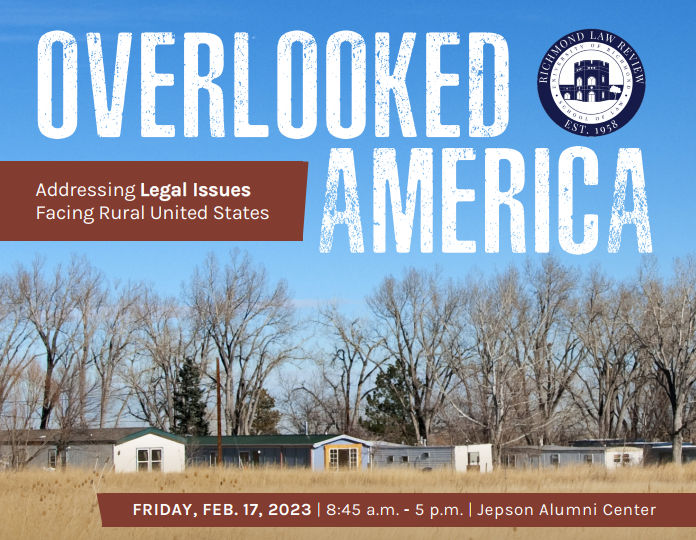
Acknowledgments
Read Full Article (PDF)
Acknowledgments
The University of Richmond Law Review is honored to present its 2023 Symposium Issue: Overlooked America: Addressing Legal Issues Facing Rural United States. Each year, the University of Richmond Law Review hosts a Symposium for scholars and practitioners to engage with a specific area of law. In a time when our country seems more divided than ever, discussions surrounding law and policy frequently diverge not just on political lines, but on regional lines as well. Rural regions of the United States are routinely evoked in the political sphere, but rarely are the problems and disparities that exist in rural America appropriately addressed by policymakers, media outlets, and scholarly sources alike. This year’s Symposium aimed to explore these underrepresented and misunderstood regions to foster inclusion of rural communities, peoples, and issues in legal scholarship.
Kelly M. Boppe *
* Symposium Editor, University of Richmond Law Review





